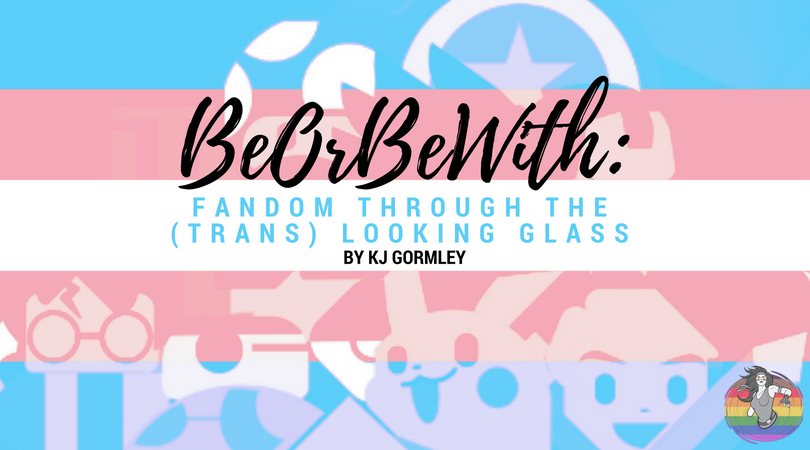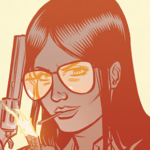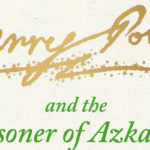
The phrase was BeOrBeWithHer. Five words into one, drawing lines around the fuzzy edges of stomach squirmy confusion of being fixated on someone of your own gender. Did you want to be her, with her achievements and poise and humor and penchant for white tank tops and slow grins over a coffee mug? Or did you want to be with her and all those qualities? I learned the term, like so many other useful twists of phrasing for the vagaries of queer identity, at my women’s college.
It took me a while after college to figure out I was using the wrong pronouns in that phrase. BeOrBeWithHim, more like. Well, BeOrBeWithHim and just BeWithHer.
This realization made life very confusing for me as I grew up and interacted with media, both as a fan and just as a human.
I recently wrote about my fictional crush, Obi-Wan Kenobi, for Rogues Portal. In thinking about whom I would feature in that piece, I ended up going through most of my childhood and adolescent fixations with a fine-tooth comb. Hindsight is more than 20/20 when you’re not cisgender or heterosexual.
I realized, as I sorted through characters and books and shows, that I don’t know who most of my fictional crushes were. I knew who I was obsessed with, but in retrospect, “crush” isn’t the right term. “Identify with” isn’t the right term, either. That was the issue: there weren’t right terms, or if there were, I learned them later. And it was even later than that when I learned how to apply these terms to myself.

My childhood and adolescence were marked by turning points of finding out that there are words for me. When I was nine, I learned that there were not-straight people in the world, because my chorus teacher petitioned for health benefits for her domestic partner. I learned about gay men in high school health class, wherein the only discussion on the topic was watching the movie Philadelphia, which is about the AIDS crisis. I learned about transgender people in college, when an acapella group at my “women’s college” had a trans guy, a senior, holding down the baseline, petitioning to graduate under his own name, and not the one with which he had enrolled.
So, like many queer and trans people, I learned who I was by encountering what the world would throw at me, should I embrace those identities. So, obviously, out of self defense, I lied. I lied like a poker pro. Of course I wanted to be Belle—who wouldn’t want to be given a library?! Oh my god, Aragorn opening those doors—who doesn’t want to be Arwen?! Yes, I am very stressed about finding a date to the dance and not because I’m terrified of not fitting in, but because I like like that guy and can easily picture us dating.
I lied in my choice of fandoms and pairings and genres. I would read a book once, and put it back on the shelf, touch the spine furtively when I passed by. Didn’t want to get too close. Didn’t want to see again what it showed me, or showed others about me. I was already “that girl” who had short hair and a temper on the field hockey field; who liked math and science and “gross things.”
I didn’t need people knowing how much I wanted to re-read Alanna. How much more I wanted to watch Mulan than Beauty and the Beast. How I wanted to be king of the pirates, only incidentally married to the guy all my friends had a crush on. The genre of “girls who disguise themselves as boys and then have adventures” is small but I think I read and then deliberately forgot most of the books and movies in it.
Avoid. Avoid. Avoid. I lied and avoided so well that it took genuine effort when writing this essay to come up with examples for that last paragraph. I buried what I really was and how I really loved so deep I forgot I even engaged with it at all.

I did the same thing with real life trans men, too. I never watched the YouTube diaries of trans guys taking their first testosterone shot. I’ve never seen Boys Don’t Cry and probably never will. I barely talked to any of the trans men I went to college with, either, even though we shared classes and drama department stages.
When I was younger and in a downswing of my family’s highly variable income stream, I learned to not ask for anything from the store, because then I wouldn’t hear “no” and my mother wouldn’t have to say it. If I didn’t engage, I wouldn’t be disappointed. This same theory applied to how I engaged with gender. If I avoided it, I wouldn’t be disappointed.
The confusing element remained in how I related to the media I actually did consume, after burying the concept of being trans so deep I’d forgotten it was even a thought. I like to call this my “oh no, am I fetishizing gay men and am therefore a terrible person?” phase. It was a valid point. If I were, as I thought at the time, a bisexual woman, why was I so damn obsessed with slash pairings in fanfiction, and only male ones at that?
Was it the fault of the Patriarchy™, whose lack of well-developed women characters to ship with each other was often seen as the reason for the uneven ratio of m/m to f/f fic in existence? Was it a terrible, deeply seated misogyny that made me kinda meh about even the most well written f/f fics in any of my fandoms? Why was my relationship to fics and media centering heterosexual relationships so hit-or-miss? I have a Tumblr. There was a lot of Discourse about this. I wallowed and wondered and tied myself up in knots.
I only knew what I would re-read over and over again, and it was the pairings where I saw myself. Between gay or bisexual men. And women, but only if the relationship were heterosexual — and not with me as the woman. The thoughts became circular and I buried that confusion, too.
Be or be with…whom?
I acknowledged my actual gender a few years ago and have embarked on the parts of transitioning that apply to my situation. Many confusing and inexplicably painful memories have become crystal clear in hindsight.
For example, my argument with my mom about not wanting to wear a fancy dress to my Confirmation wasn’t about the level of formality of the outfit but rather me trying to vocalize a rejection of the trappings of femininity and the concept of being seen as a girl. More nuanced things as well, such as how uneasily I sat with the term “butch” as applied to myself and the twitchy resentment I had at being in a “lesbian” relationship with my now ex-girlfriend. I had been uneasy with those terms due to their implication that I was a woman. In coming to embrace my trans identity, I was able to see why I had been rejecting them.
One of the best things about growing into my true gender and self is how simple enjoying media got. Sure, finding trans gay guy fiction is hard, and the search is even harder for nonbinary characters, a term I grapple with. I’m now more sensitive to trans jokes, which are everywhere. But I also don’t have to feel complicated about liking m/m fics. They are writing about me, after all. (How well being a trans guy goes over IRL in dating apps is, hmm, less simple, but that’s another essay).
Give me your “girl binds her breasts to go join a pirate ship/war.” Give me that Mulan ringtone. Give me your trans Remus Lupin headcanons. Give me your sad short stories about gay men wearing sweaters and sighing deep, weighted with ennui and generational trauma. It’s me! It’s me. Finally, it’s me.
Recently, my favorite poet, Andrea Gibson, published a poem about their complicated relationship with dating and their gender. We share a pronoun and a home state and I often use their poetry for late-night crying jags, so I was eager to hear this new piece. I wasn’t prepared for the undertow of Feelings that came along with it.
“It isn’t that you don’t like boys/ It’s that you only like boys you want to be.” Here I wrote this entire essay, and Andrea Gibson gets it down in one line.
Here’s my version: finding representation and fictional crushes is a lot easier when you actually know what you’re looking for.



![[REVIEW] THE GANG IS BACK IN ‘SCOOBY-DOO AND GUESS WHO?’](https://geekd-out.com/wp-content/uploads/2019/07/scoob_feature-150x150.jpg)
One thought on “BeOrBeWith: Fandom Through The (Trans) Looking Glass”